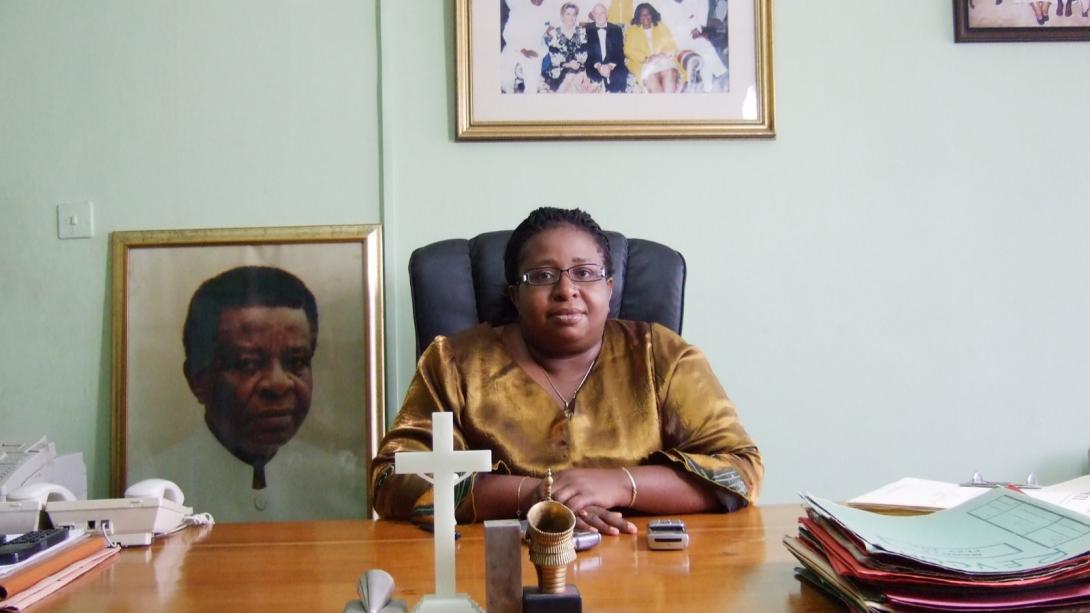
Synopsis
Peace Mission ist eine mitreißende Tour durch Nollywood, präsentiert von Peace Aniyam-Fiberesima. Die Gründerin und Vorsitzende der African Movie Academy nimmt das Publikum mit zu Dreharbeiten, auf die Märkte und zu den Treffpunkten der Stars in der Lebendigen Filmmetropole Lagos. Sie trifft sich mit den Schlüsselfiguren der nigerianischen Filmszene: Regisseure, Produzenten, Distributoren und Schauspieler. Energiegeladen und voller Improvisationstalent, verbindet sie alle die gemeinsame Vision, Afrikas Geschichte endlich aus afrikanischer Sicht zu erzählen. Auch im Westen entdeckt das Publikum neuerdings die Filme aus Nollywood, die das Vorurteil von Afrika als dem "Kontinent der Abhängigkeit" widerlegen. Während dieses Afrikabild nicht zuletzt von den westlichen Medien erschaffen und immer wieder reproduziert wurde, vollzieht "Peace Mission" den Perspektivenwechsel.
Es ist an der Zeit, ein neues Kapitel der gegenseitigen Wahrnehmung aufzuschlagen.
Credits
mit:
Peace Aniyam-Fiberesima | Ifeanyi Onyeabor
Mahmood Ali-Balogun | Kanayo O Kanayo
Jahman Oladjo Anikulapo | Chief Franz Obinwa
Chuks Aniyam | Faruk & Maimunah Sayyadi
Kate Henshaw-Nuttal | Ugochukwu G. Igbokwe
Shaibu Husseini | Obi Madubogwu
Jackie Appiah | Ini Edo | Paul Obazele
The Aniyam Osigwe Family | Dr. Don Pedro Obaseki
Buch | Regie Dorothee Wenner
Kamera Bernd Meiners
Ton Pascal Capitolin
Schnitt Merle Kröger
Musik Philip Scheffner
Tonmischung Tatjana Jakob
Postproduktion Matthias Behrens / wave-line Berlin
Produzent*innen Merle Kröger, Philip Scheffner
Redaktion ZDF Kathrin Brinkmann
produziert von pong
im Auftrag des ZDF
in Zusammenarbeit mit ARTE
unterstützt von Evangelischer Entwicklungsdienst
Visuals
Mehr Infos
-
festivals
Auswahl an Festivals 2008-09:
- Toronto International Film Festival
- Zimbabwe International Film Festival
- Pusan International Film Festival
- Sao Paulo International Film Festival
- Semana Intern. de Cine de Valladolid
- Kasseler Doumentarfilm- & Videofest
- Stockholm International Film Festival
- The London African Filmfestival
- Dubai International Film Festival
- Jerusalem International Film Festival
- Zanzibar International Film Festival
- Festival de Granada Cines del Sur, Spain
- Africa Cont. Lisboa, Portugal
- Africala Film Festival, Mexiko
- Lagunimages, Cotonou/Benin
- Windhoek International Film Festival
- Buenos Aires Film Festival
- Festival des cinémas africains, Brussels
- Honkong International Film Festival
- Festival Int. de Films de Fribourg
- Birds Eye View, London
- Pan African Film Festival, LA / USA